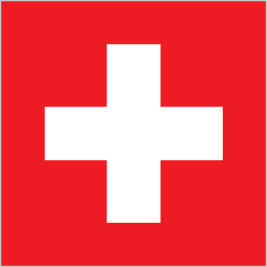
The Swiss Confederation was founded in 1291 as a defensive alliance among three cantons. In succeeding years, other localities joined the original three. The Swiss Confederation secured its independence from the Holy Roman Empire in 1499. A constitution of 1848, subsequently modified in 1874, replaced the confederation with a centralized federal government. Switzerland's sovereignty and neutrality have long been honored by the major European powers, and the country was not involved in either of the two world wars. The political and economic integration of Europe over the past half century, as well as Switzerland's role in many UN and international organizations, has strengthened Switzerland's ties with its neighbors. However, the country did not officially become a UN member until 2002. Switzerland remains active in many UN and international organizations but retains a strong commitment to neutrality.
hydropower potential, timber, salt
arable land: 9.8%
permanent crops: 0.57%
other: 89.63% (2011)
8,061,516 (July 2014 est.)
country comparison to the world: 96
German 65%, French 18%, Italian 10%, Romansch 1%, other 6%
Roman Catholic 38.2%, Protestant 26.9%, Muslim 4.9%, other Christian 5.7%, other 1.6%, none 21.4%, unspecified 1.3% (2012 est.)
German (official) 64.9%, French (official) 22.6%, Italian (official) 8.3%, Serbo-Croatian 2.5%, Albanian 2.6%, Portuguese 3.4%, Spanish 2.2%, English 4.6%, Romansch (official) 0.5%, other 5.1% note: German, French, Italian, and Romansch are all national
definition: age 15 and over can read and write
total population: 99%
male: 99%
female: 99% (2003 est.)
Bern
formally a confederation but similar in structure to a federal republic
1 August 1291 (founding of the Swiss Confederation)
Founding of the Swiss Confederation, 1 August (1291)